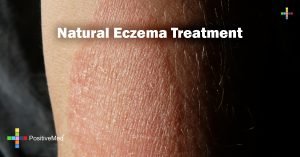
Get An Immediate Energy Boost with These 2 Diet Changes!
Unfortunately, flu season is sneaking up on us quickly! We’ve all heard the best advice for influenza prevention – get plenty of sleep, frequent handwashing, getting the flu vaccine, getting exercise, and eating a healthy diet. Aside from that, what else can be done to boost immunity? Supplementation!

RELATED ARTICLE: 5 Metabolism-Boosting Workouts
There are two supplements in particular that almost everyone needs in their diet: vitamin D and a probiotic. Why? Almost everyone is lacking in vitamin D, due to the average American diet and spending so much time at their computers, and not enough time in direct sunlight. In addition, the average American diet wreaks havoc on our digestive systems, which is why a probiotic comes in handy to help increase gut flora.
According to Harvard Health, vitamin D has been noted to promote an antimicrobial effect on tuberculosis patients. It has been documented for years that sunlight has been beneficial to tuberculosis patients; when these patients are placed in direct sunlight, this “…signals an antimicrobial response to the bacterium responsible for tuberculosis…”. What does this mean for the everyday person? Vitamin D is produced when sunlight hits the skin; if a tuberculosis patient can benefit from an increase in vitamin D, then we can deduce that we ALL would benefit.
RELATED ARTICLE: 10 Super Foods to Boost Your Mood and Energy Level
What’s the problem here? We don’t get enough sunlight, which is where supplementation proves helpful. According to Dr. Zoltan P. Rona of Vitality Magazine, taking 5,000 to 10,000 IU of vitamin D is safe in the average person. If already ill, taking upwards of 50,000 IU daily for 3 to 7 days is recommended, then decreasing to 5,000 to 10,000 IU.
According to Dr. Zoltan P. Rona, “…seventy percent or more of our immune system is controlled by what happens in the gut…”. A daily probiotic will promote the “right” type of gut flora. They also can aid in digestion and protect the body from certain sicknesses. According to Harvard Health, probiotics are composed of “good” bacteria, such as Lactobacillus and Bifidobacterium. When selecting a probiotic, search for these types of bacteria on the label.
As we head in to flu season once again, following the age-old advice of taking care of our bodies is essential. But we don’t need to stop there. Taking supplements such as vitamin D and probiotics can also prevent us from getting those nasty bugs.





